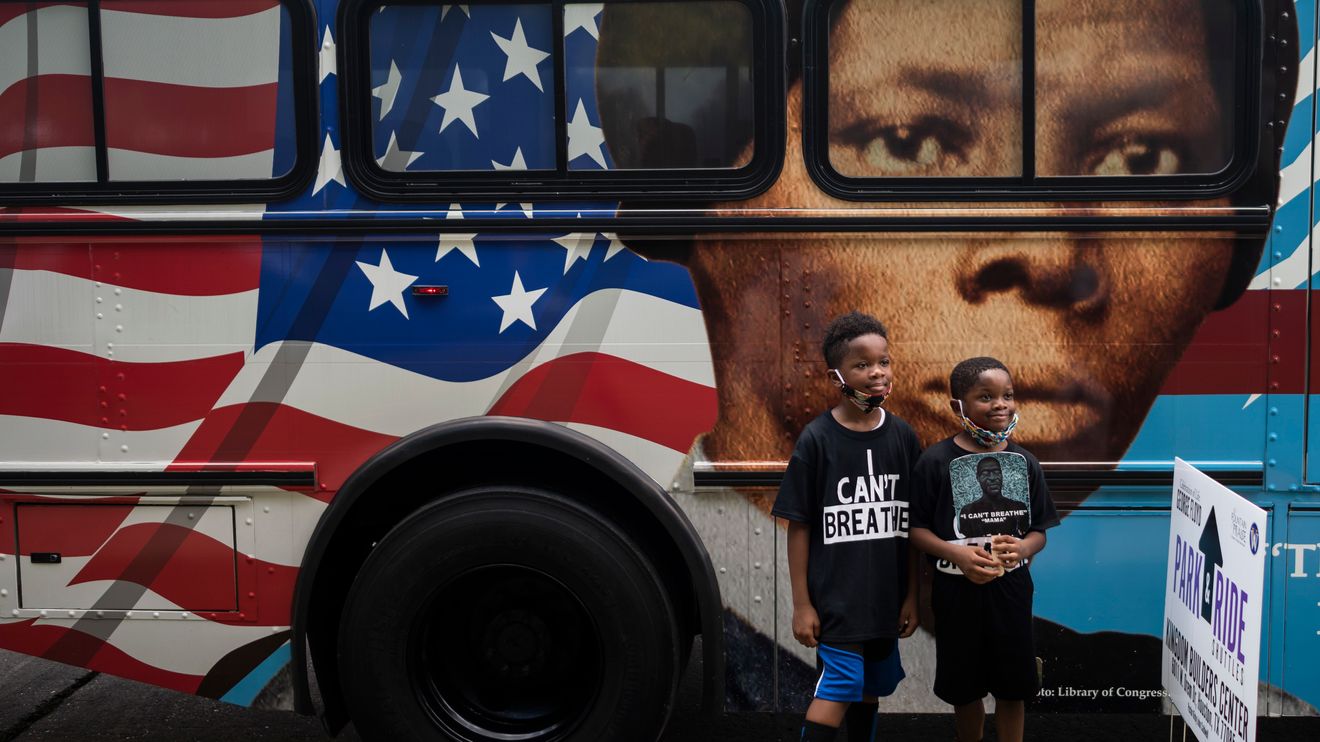
The share of Americans who gave money to racial or social justice causes increased in 2020, and donors of color were the most likely to do so — though “generosity is not unique to any one type of American,” a leading researcher emphasized.
Some 16% of Americans donated to racial or social justice causes in 2020, up from 13% in 2019, according to new research by the Lilly Family School of Philanthropy at Indiana University.
The increase came during a year when Americans confronted longstanding racial inequities with new urgency following the May 2020 murder of George Floyd by Minneapolis police and a pandemic-era uptick in anti-Asian hate crimes and bias incidents.
Looking at giving across racial and ethnic groups in 2020, the Lilly research found that 31% of Asian households reported giving to racial and social justice causes, followed by 19% of Black households, 14% of Hispanic households and 13% of white non-Hispanic households.
‘Generosity is not unique’
Despite varying rates of giving to racial and social justice causes, the Lilly research suggested more similarities than differences among racial and ethnic groups when it comes to charitable giving in general, said Una Osili, the associate dean for research and international programs at the Lilly Family School.
When researchers adjusted for economic circumstances including income, education and wealth, “a lot of the differences we see by race and ethnicity actually do not hold up,” Osili said. “In other words, all Americans are engaged in philanthropy, and generosity is not unique to any one type of American.”
She added, “This is probably a finding that needs to be lifted up even more, because in this era where we speak of persistent disparities, we actually note that generosity is something that brings Americans together regardless of their race or ethnicity.”
‘A higher level of general trust’
Still, the research suggested differences among donors. Donors to social justice causes tended to be younger, less likely to attend church services and less likely to be married than donors to other charitable causes.
They also “showed a higher level of general trust and willingness to support the common good (for example, working for the well-being of society, making an effort on behalf of others, and helping people in need),” according to the Lilly research, which included focus groups and a national survey of 1,535 households.
‘No matter what the world or this country is doing to us, we give’
Black and Hispanic households had the highest rates of giving to people they know, and were also the most likely to give to strangers, helping them with both money and non-monetary assistance, the Lilly research found.
Some 86% of Black households said they gave to people they know and 76% said they give to strangers. Overall, 72.7% of donors said they give to people they know and 49.6% said they give to strangers.
“We take great pride in the fact that no matter what the world or this country is doing to us, we give,” said Jackie Bouvier Copeland, the founder and chief architect of Black Philanthropy Month and The Women Invested to Save Earth Fund.
Black Philanthropy Month, which marks its 10th anniversary this August, aims to celebrate Black giving and advance funding to strengthen Black communities. This year organizers are asking philanthropies and venture capital funders to adopt funding principles aimed at giving Black people “equitable access to private capital.”
Black households donate higher percentages of their incomes than any other racial or ethnic group, Copeland said, amounting to about $11 billion a year, according to 2012 research by the W. K. Kellogg Foundation.
“Considering the racial stereotypes of Black communities that we’re the supplicants of the world, the false narrative that we don’t help ourselves — that number is a really important indicator of self-help,” Copeland said.
A separate 2018 study by the liberal-leaning Urban Institute think tank using data from the Federal Reserve’s Survey of Consumer Finances found that of “all racial or ethnic groups in the dataset, Black families have contributed the largest proportion of their wealth — which can include savings, used cars, land, and investment accounts — to charity since 2010.”
Dollars up, donors down
Americans collectively gave $471 billion to charities in 2020, the highest amount of money ever donated, according to Giving USA, an annual report on philanthropy in the U.S.
At the same time, fewer people have been donating to charity in recent years. Just under half — 49.6% — of U.S. households donated to charity in 2018, the latest year for which data was available. That’s an almost 17-percentage-point drop from 2000, when 66.2% of American households made charitable donations, according to a separate Lilly Family School report on longer-term trends in philanthropy.
Both that report and the Lilly Family School report on racial-justice donations were funded by the Bill & Melinda Gates Foundation.





